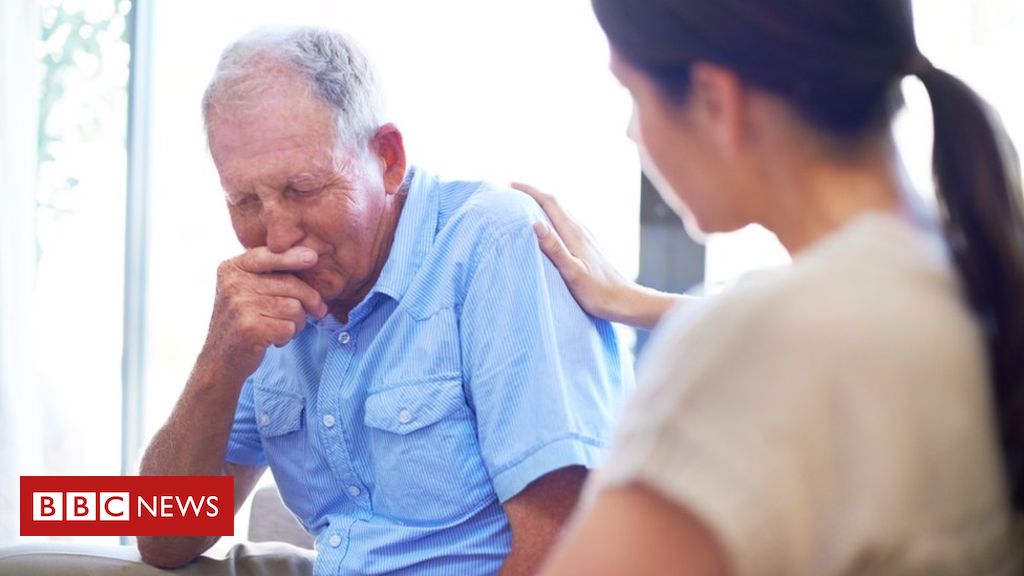
Palliative care doctors are urging people to have a conversation about what they would want if they, or their loved ones, became seriously unwell with coronavirus.
We should discuss all possible scenarios – even those we are not “comfortable to talk about”, they said.
Medics said the virus underlined the importance of these conversations.
New guidelines are being produced for palliative care for Covid-19 patients, the BBC understands.
Dr Iain Lawrie, president of The Association for Palliative Medicine of Great Britain and Ireland, told the BBC that palliative care teams around the country were working together to create the guidance.
He said the impact of the virus was likely to change how palliative care would be delivered in future.
While the majority of patients with Covid-19 will get mild or moderate symptoms, for some patients the virus will be life-threatening.
Some of the patients who have already died from the virus have not been in intensive care, as this would not have made any difference to their outcome. Instead they have been cared for on an NHS ward.
Advanced care planning
“The great temptation when you are scared, and of course, we are all scared, is to try to close your mind to your worst fears,” says Dr Rachel Clarke, author and palliative care specialist.
“Why would anyone want to contemplate their own mortality right now when everyone could be threatened? But it is precisely that uncertainty that makes this the most important time for advanced care planning.”
Advanced care planning is a technical term but, “really advanced care planning amounts to nothing more complicated than having a think – with your nearest and dearest – about what would matter to you if you became so sick that you may die”, Dr Clarke said.
“Are you the kind of person who would want to go to hospital, to intensive care or would you want to stay at home?” she added.
“If you don’t have these conversations and the worst does happen, it would be terrible, if your loved one suddenly became sick and couldn’t speak for themselves, and you realised you didn’t know what Mum would have wanted – you would have to say, ‘I don’t know’,” Dr Clarke says.
“You might always be left with the haunting, nagging fear that you weren’t able to advocate for her.
“Isn’t it more important to have these conversations, just in case, than end up in a panic, wondering what a loved one would have wanted?”
Adrienne Betteley, from Macmillan Cancer Support said: “It is never too early to have conservations about advance care plans. We need to encourage people to start talking about their wishes as soon as possible.”
New ways of working
Dr Lawrie said the coronavirus crisis was highlighting the “lack of resourcing” for palliative care medicine. He said there were 60 unfilled consultant palliative care posts across the UK and he said the number of specialist nurses was a “worry”.
He told the BBC that palliative care teams were currently looking at new ways of working as the crisis deepened, using telephone support, FaceTime and Skype.
They also were looking at alternative medicines and routes of administration of drugs that families could give, if patients decided they wanted to stay at home.
He told the BBC new guidelines were being drawn up for the crisis.
“I think the coronavirus crisis could change how palliative care is delivered in the future,” he said.
“The coronavirus crisis underlines the need to have these difficult conversations, that we often put off, what our wishes are, what is most important to us.”
